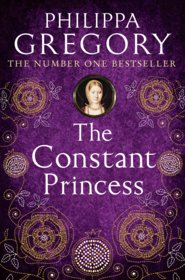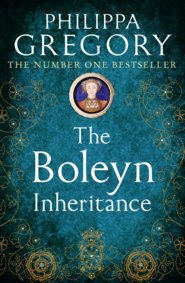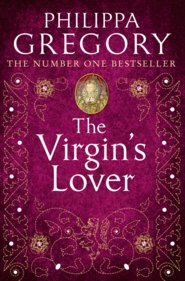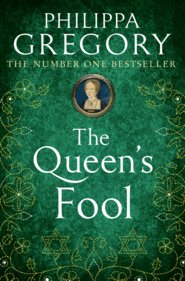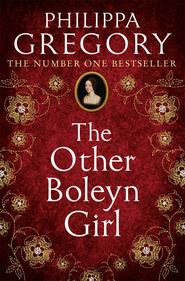По всем вопросам обращайтесь на: info@litportal.ru
(©) 2003-2025.
✖
Earthly Joys
Настройки чтения
Размер шрифта
Высота строк
Поля
‘You’re paid a vast sum!’ she protested. ‘And Sir Robert trusts you. He gives you gold to buy his trees, and he is high in favour with the king. They say he is certain to take you to London to make his garden there …’
John hid his surprise. He had thought that she had been watching him and desiring him, as he, despite his caution, had been watching and wanting her. But this careful planning was not the voice of a besotted eighteen-year-old. ‘Who says this?’ he asked, carefully keeping his voice neutral. ‘Your uncle?’
She nodded. ‘He says you are set fair to be a great man, although you are only a gardener. He says that gardens are the fashion and that Mr Gerard and you are the very men. He says you could go as far as London. Perhaps even into the king’s service!’ She broke off, excited by the prospect.
John had disappointment like a sour taste in his mouth. ‘I might.’ He could not resist testing her liking for him. ‘Or I might prefer to stay in the country and try my hand at breeding flowers and trees. Would you come with me, to a little cottage, if I become a gardener in a small way, and husband a little plot?’
Involuntarily she stepped back. ‘Oh, no! I couldn’t bear anything mean! But surely, Mr Tradescant, that is not your wish?’
John shook his head. ‘I cannot say.’ He felt himself fumbling for a dignified retreat, conscious of the desire in his face, the heat in his blood, and the contradictory, sobering awareness that she had seen him as an opportunity for her ambition, and never looked at him with desire at all. ‘I could not promise to take you to London. I could not promise to take you anywhere. I could not promise wealth or success.’
She pouted her lower lip, like a child who has been disappointed. Tradescant put both his hands in the deep pockets of his coat so that he would not be able to put them around her yielding waist, and pull her to him for consolation and kisses.
‘Then you may fetch your own dinner!’ she cried shrilly and turned abruptly away from him. ‘And I’ll find a handsome young man to dine with. A Scots man with a place at court! There are many who would be glad to have me!’
‘I don’t doubt it,’ John said. ‘And I would too, but …’ She did not wait to hear his excuses, she flounced around and was gone.
A serving man pushed past him with a huge platter of fine white bread, another ran behind with flagons of wine clutched four in each hand. John turned from the noise of the kitchen area and went towards the great hall.
The king was seated, drinking red wine at the enormous hearthside. He was already vastly, deeply drunk. He was still filthy from the day’s hunting and the travel along the muddy roads and he had not washed. Indeed, they said that he never washed, but merely wiped his sore and blotchy hands gently on silk. The dirt beneath his fingernails had certainly been there since his triumphant arrival in England, and probably since childhood. Sitting beside him was a handsome young man dressed as richly as any prince but who was neither Prince Henry the older son and heir, nor Prince Charles the younger brother. As John waited at the back of the hall and watched, the king pulled the youth towards him and kissed him behind his ear, leaving a dribble of red wine along the pleats of his white ruff.
There was a roar of laughter at some joke and the king plunged his hand into the favourite’s lap and squeezed his padded codpiece. The man snatched up the hand and kissed it. There was high ribald laughter, from women as well as men, sharing the joke. No-one paused for a moment at the sight of the King of England and Scotland with his dirty hand thrust into the lap of a man.
John watched them as if they were curiosities from another country. The women were painted white from their large horsehair wigs to their half-naked breasts, their eyebrows plucked and shaped so their eyes seemed unnaturally wide, their lips coloured pink. Their gowns were cut low and square over their bulging breasts and their waists were nipped in tight by embroidered and jewel-encrusted stomachers. The colours of the silks and satins and velvet gowns glowed in the candlelight as if they were luminous.
The king was sprawled in his seat with half a dozen intimates around him, most of them already drunk. Behind them all the court drank flagon after flagon of rich wine, and flirted, and schemed and caroused, some inarticulate with drink, some incomprehensible with their broad Scots accents. One or two, with an eye to the English scrutiny, spoke quietly to each other in Scots.
There was to be a masque later representing Wisdom meeting Justice, and some of the court were already in their masquing clothes. Justice was dead drunk, slumped over the table, and one of the handmaidens of Wisdom was at the back of the hall, backed up against the wall, with one of the Scots nobles investigating the layers of her petticoats.
John, conscious of the great disadvantage of watching this scene stone-cold sober, took a cup from a passing servant and downed a great gulp of the very best wine. He thought briefly of the old queen’s court where there had been vanity and wealth indeed, but also the rigid discipline of the autocratic old woman who ruled that since she had denied herself pleasure, the rest of the court should be chaste. There had been parties everywhere she had gone, masques and balls and picnics, but all behaviour that fell under the scrutiny of that fierce gaze had been strictly constrained. John realised that the long carnival-like journey from Scotland to England must have been a revelation to the English courtiers and what he was seeing was the consequence of a rapid recognition that anything was now permitted.
The king emerged from a slobbering kiss. ‘We must have more music!’ he shouted.
In the gallery, the musicians who had been fighting to make themselves heard above the hubbub of the hall started another air.
‘Dance!’ the king exclaimed.
Half a dozen of the court formed two lines and started to dance, the king pulled the young man down to sit between his knees and caressed the dark ringlets of his hair. He bent down and kissed him full on the mouth. ‘My lovely boy,’ he said.
John felt the wine in his veins and in his head but feared that no wine would be strong enough to persuade him that this scene was joyful, or this king was gracious. Such thoughts were treason, and John was too loyal to think treason. He turned around and left the hall.
July 1604 (#ulink_edcc22f5-7251-5aa2-974b-15e3f7c1a539)
‘What do we have that is the most impressive?’ Sir Robert came upon John in the scented garden, a square internal court where John had grown jasmine, honeysuckle, and roses against the walls to soften their grim greyness. John was balanced on the top of a ladder, pruning the honeysuckle which had just finished flowering.
John turned to look at his master and took in at once the new lines of strain on his face. The first year of the new king’s reign had been no sinecure for his Secretary of State. Wealth and honour had been showered on Cecil and on his family and adherents; but wealth and honour had equally been poured on hundreds of others. The new king, born into a kingdom of bleak poverty, thought the coffers of England were bottomless. Only Cecil knew and appreciated that the wealth that Queen Elizabeth had hoarded so jealously was flowing out of the treasure room of the Tower quicker than he could hope to gather it back in.
‘Impressive?’ John asked. ‘An impressive flower?’ His expression of complete bewilderment made his master suddenly laugh aloud.
‘God’s blood, John, I have not laughed for weeks. With this damned envoy from Spain at my heels all the time and the king slipping away to hunt at every moment and them always asking me, what will the king think? and I without an answer! Impressive. Yes. What do we grow that is impressive?’
John considered for a moment. ‘I never think of plants as impressive. D’you mean rare, my lord? Or beautiful?’
‘Rare, strange, beautiful. It is for a gift. A gift which will make men stare. A gift which will make men wonder.’
John nodded, slid down the ladder like a boy, and turned from the garden at a brisk walk. At once he remembered who he was leading and slowed his pace.
‘Don’t humour me,’ his lord snapped from a few paces behind. ‘I can keep up.’
‘I was slowing to think, my lord,’ John said swiftly. ‘My trouble is that the main flowering season is over now we are in midsummer. If you had wanted something very grand a couple of months ago I could have given you some priceless tulips, or the great rose daffodils which were better this year than any other. But now …’
‘Nothing?’ the earl demanded, scandalised. ‘Acres of garden and nothing to show me?’
‘Not nothing,’ Tradescant protested, stung. ‘I have some roses in their second bloom which are as good as anything in the kingdom.’
‘Show me.’
Tradescant led the way to the mount. It was as high as two houses, and the lane which led the way to the top was broad enough for a pony and a carriage. At the summit was a banqueting hall with a little table and chairs. Sometimes it would amuse the three Cecil children to dine at the top of the hill and look down on all that they owned; but Robert Cecil only rarely came here. The climb was too steep for him and he did not like to be seen riding while his children walked.
The hedges of the lane which wound to the summit were planted with all the varieties of English roses that Tradescant could find in the neighbouring counties: cream, peach, pink, white. Every year he grafted and re-grafted new stock on to old stems to try to make a new colour, a new shape or a new scent.
‘They tell me this is sweet,’ he said, proffering a rose striped white and scarlet. ‘A Rosamund rose, but with a perfume.’
His lord bent and sniffed. ‘How can you breed for scent when you cannot smell them yourself?’ he asked.
John shrugged. ‘I ask people if they smell good or better than other roses. But it is hard to judge. They always tell me the scent in terms of another scent. And since I have never had a nose which could smell then it’s no help to me. They say “lemony” as if I would know what a lemon smells like. They say “honey” and that is no help either, for I think of one as sour and one as sweet.’
Robert Cecil nodded. He was not the man to pity a disability. ‘Well, it smells good to me,’ he said. ‘Could I have great boughs of it by August?’
John Tradescant hesitated. A less faithful servant would have said ‘yes’ and then disappointed his master at the final moment. A better courtier would have guided him away to something else. John simply shook his head. ‘I thought you wanted it for today or tomorrow. I cannot give you roses in August, my lord. Nobody can.’
Cecil turned away and started to limp back to the house. ‘Come with me,’ he said shortly over his sloped shoulder. Tradescant fell in beside him and Cecil leaned on his arm. Tradescant took the burden of that light weight and felt himself soften with pity for the man who had all the responsibility for running three, no, four kingdoms with the new addition of Scotland, and yet none of the real power.
‘It’s for the Spanish,’ Cecil told him in an undertone. ‘This gift that I need. What do people in the country think of the peace with Spain?’
‘They mistrust it, I think,’ John said. ‘We have been at war with Spain for so long, and avoided defeat so narrowly. It’s impossible to think of them as friends the very next day.’
‘I cannot let us stay at war in Europe. We will be ruined if we go on pouring men and gold into the United Provinces, into France. And Spain is no threat any more. I must have a peace.’
‘As long as they don’t come here,’ John said hesitantly. ‘No-one cares what happens in Europe, my lord. Ordinary people care only for their own homes, for their own county. Half the people here at Cheshunt or Waltham Cross care only that there are no Spaniards in Surrey.’
‘No Jesuits,’ Cecil said, naming the greatest fear.
John nodded. ‘God preserve us. We none of us want to see burnings in the market place again.’
Cecil looked into the face of his gardener. ‘You’re a good man,’ he said shortly. ‘I learn more from you in a walk from my mount to my orangery than I do from a nation full of spies.’
The two men paused. The orangery at Theobalds was open at every doorway, the double white-painted doors allowing the warm summer sunshine to flood into the rooms. Tender saplings and whips of oranges, lemons, and vines were still kept inside – Tradescant was a notoriously cautious man. But the mature fruit trees were out in the fine weather, housed in great barrels with carrying loops at four points so they could adorn the three central courts of Theobalds in the summer, and bring a touch of the exotic to this most English of palaces. Long before the first hint of frost Tradescant would have them carried back into the orangery and the fires lit in the grates to keep them safe through the English winter.







